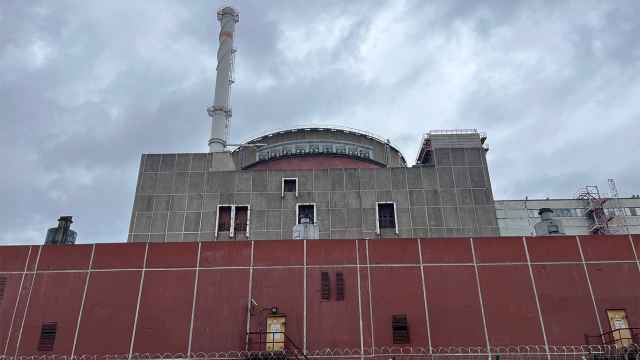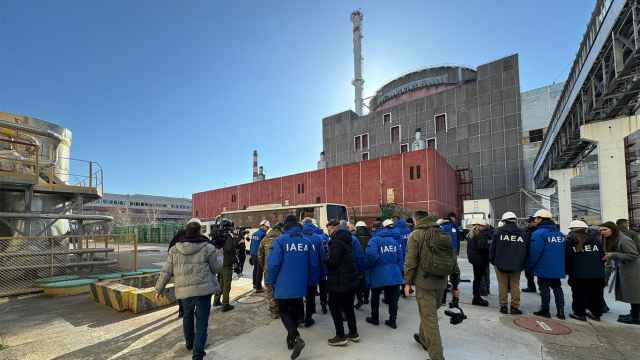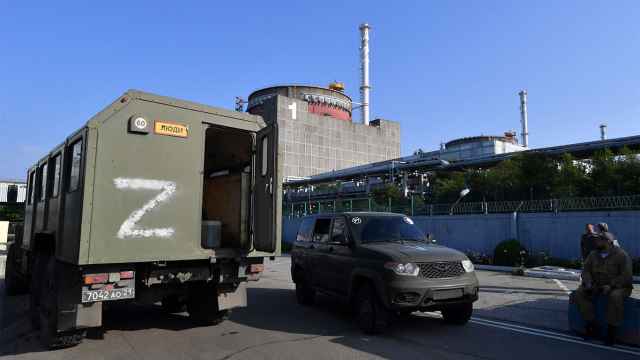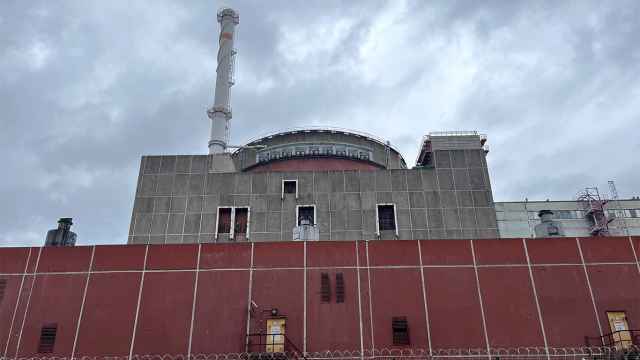UN nuclear chief Rafael Grossi on Thursday said the situation at the Moscow-occupied Zaporizhzhia nuclear power plant in Ukraine was "serious," but was being stabilized.
Grossi arrived at Europe's biggest nuclear plant to assess potential safety risks after the destruction of the Kakhovka dam, which caused huge floods and exacerbated fears for the facility's safety.
The dam formed a reservoir that provided the cooling water for the plant.
"On the one hand, we can see that the situation is serious, the consequences (of the dam's destruction) are there, and they are real," Grossi, head of the International Atomic Energy Agency, said on a visit to the plant.
"At the same time, there are measures that are being taken to stabilize the situation."
AFP saw Grossi arrive at the plant in a white jeep with the IAEA blue flag attached to it.
His car was followed by armored vehicles.
Grossi's third trip to the plant came as Ukraine launched its long-awaited counteroffensive, with fighting intensifying in the Zaporizhzhia region.
He said the visit to the plant, which was delayed by a day for unexplained reasons, was "compact" but "important."
He said he was able to see the plant's cooling pond.
"There is sufficient water," the Grossi said.
He said he was also able to visit "the thermal plant open switchboard which has been affected by military activity."
Grossi — who has held talks with both Russia and Ukraine officials — had previously proposed measures for the facility's safety but the initiative has so far stalled.
He said he wanted the world to be "aware of the danger" that there could be "a major accident."
"What I expect is the entire international community, the Russian Federation, Ukraine and everybody else supports us, to prevent that from happening."
A Message from The Moscow Times:
Dear readers,
We are facing unprecedented challenges. Russia's Prosecutor General's Office has designated The Moscow Times as an "undesirable" organization, criminalizing our work and putting our staff at risk of prosecution. This follows our earlier unjust labeling as a "foreign agent."
These actions are direct attempts to silence independent journalism in Russia. The authorities claim our work "discredits the decisions of the Russian leadership." We see things differently: we strive to provide accurate, unbiased reporting on Russia.
We, the journalists of The Moscow Times, refuse to be silenced. But to continue our work, we need your help.
Your support, no matter how small, makes a world of difference. If you can, please support us monthly starting from just $2. It's quick to set up, and every contribution makes a significant impact.
By supporting The Moscow Times, you're defending open, independent journalism in the face of repression. Thank you for standing with us.
Remind me later.






